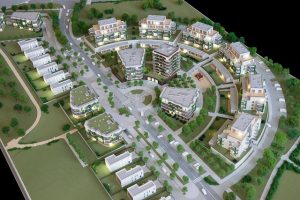For successful community outreach events by local businesses, event planning focused on audience needs is essential. This involves demographic analysis, understanding community interests and passions, and directly gathering feedback from residents. By aligning event themes with pressing local issues and community dynamics, planners foster engagement, belonging, and trust. Strategic surveys, focus groups, and organized meetings are key to this tailored approach, ensuring events enrich the neighborhood's social, cultural, and economic landscape. (Event Planning for Local Businesses)
Community outreach events are a powerful tool for local businesses to connect with their target audience. Effective event planning starts with understanding your community’s unique needs, interests, and demographics. This article guides you through the process of creating successful outreach events. We’ll explore strategies for identifying key audiences, crafting engaging concepts, and ensuring smooth logistics through collaboration. By following these steps, local businesses can enhance their community presence and foster meaningful connections.
- Understanding Your Community's Needs
- – Identifying the target audience and their interests
- – Conducting surveys and community meetings to gauge interest and gather feedback
Understanding Your Community's Needs

When planning community outreach events, understanding your community’s needs is a cornerstone of successful event planning for local businesses. It involves taking the time to listen and assess the specific requirements and interests of your target audience. This process ensures that the event resonates with participants, fostering a sense of engagement and belonging.
By delving into the unique dynamics and challenges faced by your community, you can tailor activities, workshops, or information sessions to address pressing local issues. Whether it’s promoting environmental sustainability, offering career development opportunities, or providing healthcare awareness, aligning event themes with community needs strengthens the impact and encourages active participation from local businesses and residents alike.
– Identifying the target audience and their interests

When planning community outreach events for local businesses, understanding your target audience is paramount. The first step involves identifying demographics like age groups, genders, and geographic locations to ensure the event resonates with those most likely to attend. However, it goes beyond mere demographics. Event planners must also delve into the interests and passions of the community members. Are they foodies? Nature enthusiasts? Tech-savvy professionals? Knowing this helps in tailoring activities, speakers, and exhibits that cater directly to their preferences. For instance, a local tech business might host an event focused on coding workshops for youth, while a culinary store could organize a cooking class with a renowned chef, appealing to food lovers.
Event planning becomes more effective when organizers consider community needs and feedback. This may involve conducting surveys or holding focus groups to gauge what the local business scene can offer that would be most beneficial and entertaining for attendees. By aligning event themes with audience interests, local businesses can foster stronger connections within their communities, encouraging engagement and loyalty. Such strategic planning ensures events are not just one-off occurrences but become integral parts of the fabric that weaves together the social, cultural, and economic life of a neighborhood.
– Conducting surveys and community meetings to gauge interest and gather feedback

Before kickstarting any community outreach events, local businesses must engage in a crucial step: conducting thorough surveys and organizing community meetings. This strategic approach enables event planners to gauge public interest and gather valuable feedback, ensuring that the upcoming initiatives align with the community’s needs and expectations. By gathering insights directly from residents, businesses can design events that foster meaningful connections and positive outcomes.
Through these interactive sessions, local entrepreneurs gain a deeper understanding of their target audience, allowing them to tailor activities that resonate with diverse interests. Whether it’s a focus group or an open-forum meeting, such initiatives provide a platform for two-way communication, fostering trust and collaboration. This methodical process sets the foundation for successful event planning, where every detail is considered, from choosing the right venue to selecting engaging activities, all based on community feedback.
Community outreach is a vital aspect of successful event planning for local businesses. By understanding your audience’s interests and needs through targeted surveys and community meetings, you can create events that resonate deeply with participants. This strategy not only fosters stronger connections within the community but also enhances local business visibility and engagement, ultimately contributing to a thriving and united neighborhood. So, take a dive into these planning processes to ensure your events are inclusive, well-received, and beneficial for all involved.
